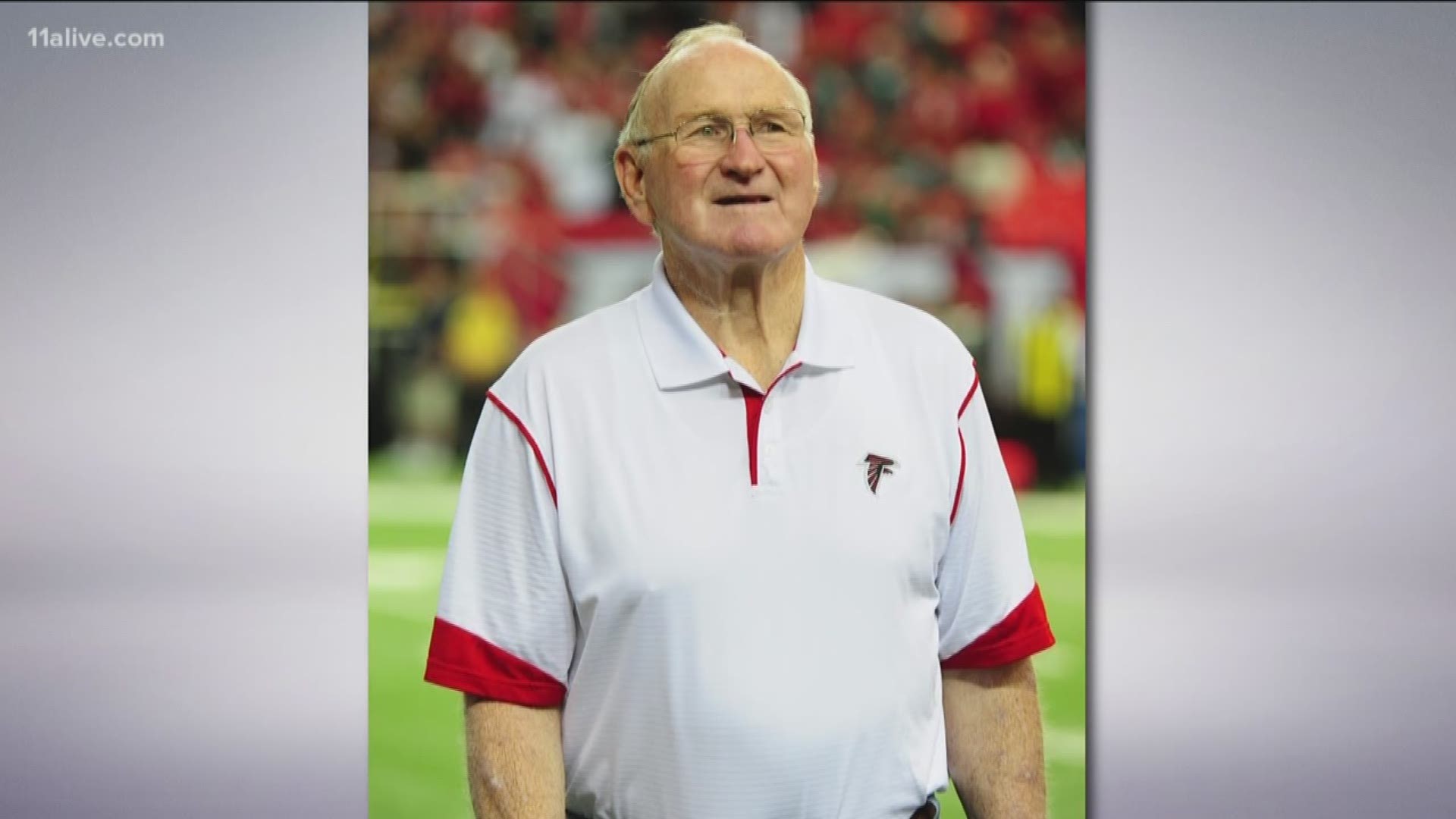ATLANTA — Nearly 14 months have passed since the Atlanta Falcons lost the original face of its franchise, Tommy Nobis.
Nobis's all-time legacy was secured in 1966, the day the University of Texas product (a two-way player at the college level) became the expansion franchise's first-ever draft pick (No. 1 overall).
And Nobis built upon that foundation by giving his heart and soul to the club for 11 seasons (1966-76), earning one All-Pro selection and making five Pro Bowl appearances.
These sacrifices of body and mind brought forth another unfortunate consequence. On Tuesday, the Concussion Legacy Foundation revealed the Falcons Hall of Famer, aka Mr. Falcon, had encountered a severe form of chronic traumatic encephalopathy (Stage 4), or commonly known in athletic circles as CTE.
Brain-trauma physicians at Boston University concluded that, before Nobis' death in 2017, he had incurred a 'severe loss of neurons and large CTE lesions throughout the cerebral cortex,' according to the Associated Press.
In a subsequent interview with the AP, Nobis' daughter, Devon Jackoniski, expressed little surprise to the medical findings.
"We knew there was going to be something wrong on his pathology report," said Jackoniski. "But it was shocking how a human being could still be alive with that little functioning brain."
In August 2013, the NFL brokered a landmark settlement with approximately 4,500 former players and their families, establishing a whopping payout of $765 million.
The settlement has brought much awareness to the effects of playing with concussions or head and neck trauma, something that might have been celebrated – perhaps as a badge of honor – during the 1950s into the early nineties.
In recent years, the NFL has overhauled its efforts and policies toward equipment and helmet upgrades, better communication between training staff and outside doctors, along with protocol for handling concussions or any other type of potential head trauma.
Hits above the shoulder are no longer tolerated and independent physicians must OK a player's in-game or future return – unlike previous seasons, when NFL team doctors were assigned that responsibility.


